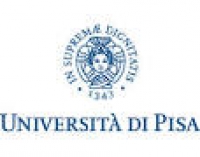






The health professional with graduation in Dentistry will be able to perform all the activities related to prevention, diagnosis and treatment of diseases as well as congenital and acquired anomalies of the teeth, mouth, jaw bone and temporo-mandibular joints, prescribing all medicines and products needed to practice. In general, the first two years will be focused on basic training activities designed to allow the student learning the fundamentals of the structural organization and vital functions of the human body. After having acquired the knowledge concerning the systems and principles underlying the ethiopathogenesis of organic, functional and homeostatic alterations, the student will be acquainted with the evaluation of the pathological pictures of the most common diseases, and introduced to the general principles of pharmacological and anaesthesiological sciences. The subsequent three years will be dedicated to study the topics of medical, surgical and specialist areas, with particular regard for clinical problems related to oral pathologies. These training activities will be carried out in conjunction with the study of dental disciplines and professional clinical internships. The theoretical courses, together with clinical training in oral pathology, restorative dentistry, oral surgery, periodontics, orthodontics, pediatric dentistry and prosthetics, will pursue the common goal of gaining sufficient skills and experience to address and resolve the problems of oral health from the standpoint of preventive, diagnostic, prognostic, therapeutic and rehabilitation, The fifth year will include courses of therapy and maxillofacial pathology as well as a course of implantology, which, like the others, is set within a context of global patient care. The sixth year has been designed to teach exclusively professional skills on how to manage patients with dental problems.
| Number | Duration |
|---|---|
| 3 | year |
The health professional with graduation in Dentistry will: - acquire knowledge on the fundamentals of human anatomy, histology, physiology, pathology, integrating the study of pathophysiological and pathological clinical methodology and diagnostic procedures which allow the evaluation of the main pathological pictures; - know the main connections and therapeutic, medical and surgical approaches complementary to Dentistry; - know the drugs directly and indirectly related with the practice of Dentistry and understand the implications of drug therapy of systemic diseases on dental treatments; - be able to identify priorities for consistent treatment needs, participating with others in planning interventions aimed at reducing community oral diseases, taking advantage from the knowledge of principles and practice of community Dentistry; - the ability of setting and achieving autonomy in implementing therapeutic programs aimed at the care and rehabilitation of stomatognathic system; - have the ability of interacting appropriately with the patient and promoting patient education in oral hygiene techniques, by means of appropriate and effective information, based on knowledge generally accepted by the scientific community, in order to obtain informed consent to treatment; - have the ability of assessing databases in order to acquire scientific documentation and analyze the scientific literature in order to apply the results of clinical research to therapy in a reliable manner.